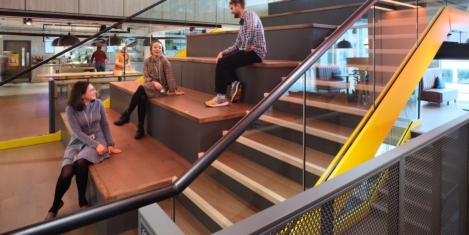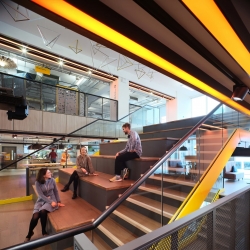To provide the best experiences, we use technologies like cookies to store and/or access device information. Consenting to these technologies will allow us to process data such as browsing behaviour or unique IDs on this site. Not consenting or withdrawing consent, may adversely affect certain features and functions.
The technical storage or access is strictly necessary for the legitimate purpose of enabling the use of a specific service explicitly requested by the subscriber or user, or for the sole purpose of carrying out the transmission of a communication over an electronic communications network.
The technical storage or access is necessary for the legitimate purpose of storing preferences that are not requested by the subscriber or user.
The technical storage or access that is used exclusively for statistical purposes.
The technical storage or access that is used exclusively for anonymous statistical purposes. Without a subpoena, voluntary compliance on the part of your Internet Service Provider, or additional records from a third party, information stored or retrieved for this purpose alone cannot usually be used to identify you.
The technical storage or access is required to create user profiles to send advertising, or to track the user on a website or across several websites for similar marketing purposes.
 Being proactive at work is key to finding your job meaningful, a new study from ESSEC Business School suggests. According to the research, undertaken by Karoline Strauss, Professor of Organisational Behaviour at ESSEC Business School, proactivity at work and job meaningfulness are linked, especially when employees are otherwise unsure about the impact their tasks will have. More →
Being proactive at work is key to finding your job meaningful, a new study from ESSEC Business School suggests. According to the research, undertaken by Karoline Strauss, Professor of Organisational Behaviour at ESSEC Business School, proactivity at work and job meaningfulness are linked, especially when employees are otherwise unsure about the impact their tasks will have. More →























 Six workplaces across the North of England and Northern Ireland have been recognised at the annual British Council for Offices (BCO) Regional Awards today. The Northern BCO Awards dinner returned in-person to the Kimpton Clocktower in Manchester, recognising the North’s highest quality developments and setting the standard for excellence in the office sector across the UK.
Six workplaces across the North of England and Northern Ireland have been recognised at the annual British Council for Offices (BCO) Regional Awards today. The Northern BCO Awards dinner returned in-person to the Kimpton Clocktower in Manchester, recognising the North’s highest quality developments and setting the standard for excellence in the office sector across the UK. 









August 3, 2022
We can re-imagine the future of human resources
by Richa Gupta • Comment, Workplace